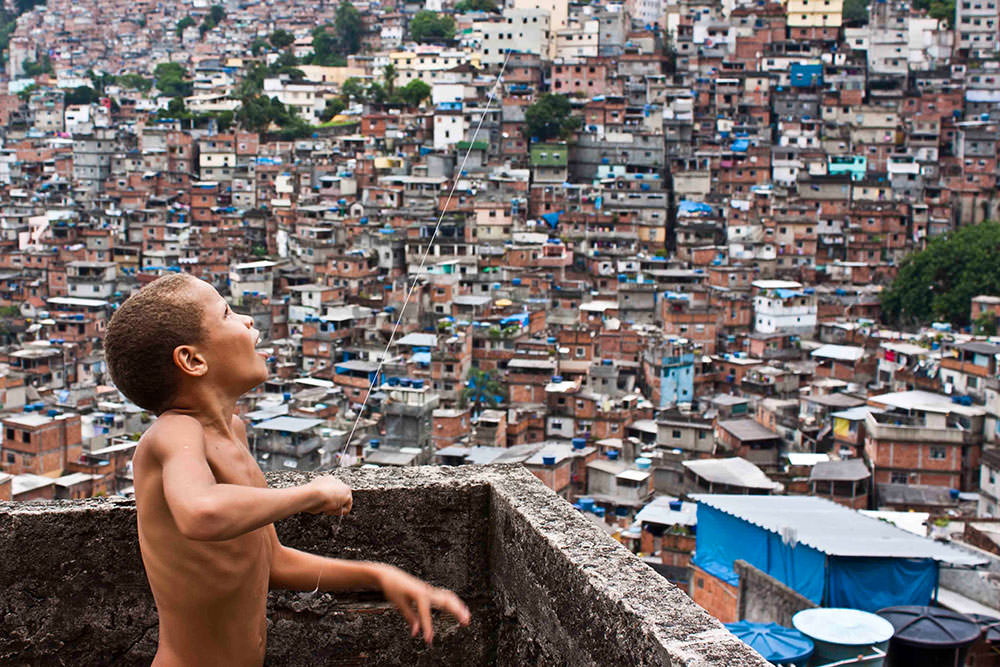Hot Docs 2016: Made in Australia
This year’s Hot Docs International Documentary Festival showcased some of the most challenging and diverse stories from around the world, with Australia firmly in the spotlight.
 In the Shadow of the Hill
In the Shadow of the Hill
It was clear from the outset that Australia’s presence at Hot Docs wasn’t about to go unnoticed. The opening night of the festival kicked off with Chasing Asylum, Eva Orner’s deeply unsettling – and remarkably candid – look inside the detention centres on Nauru and Manus Island. For the first time, secret footage shot inside the camps brought home to audiences just how grim conditions are for the detained refugees, trapped in limbo, as they wait in vain for news of their future.
The effect on audiences in Toronto was immediate – matched only by the media’s response the following day. Everyone wanted to know more. Reviews were overwhelmingly positive.
Another Australian film to create headlines, Hollie Fifer’s The Opposition, did so on World Press Freedom Day – ironically, after its subject objected to the film’s content at the eleventh hour. With the full support of the festival – North America’s largest for documentaries – the filmmakers took the unprecedented step of dubbing a voiceover from actor Sarah Snook, read out over a black screen, to replace dialogue and footage they were ordered to remove. The effect was, again, unnerving.
Beyond the headlines lay tales of empowerment and richness far beyond the physical reach of most Canadians. Aaron Peterson’s father-son, coming-of-age adventure, Zach’s Ceremony, explored the awkward shift from adolescence to manhood, and the need for preservation of ancient customs and tradition, much of it unknown outside of Australia’s indigenous communities. Likewise, Nicole Ma’s 2015 CinéfestOZ Prize winner Putuparri and the Rainmakers showcased an incredibly tough journey for one man connected to the land.
Equally confronting was Molly Reynolds’ Another Country, featuring David Gulpilil as he revisited his former homeland in Far North Queensland. An altogether different side of Australian life featured in Pete Gleeson’s fly-on-the-wall reality check, Hotel Coolgardie, which tracked two Finnish female backpackers recruited to work in a no-frills pub in the remote mining country of WA.
If the sometimes shocking images in these films proved eye-opening to some, they didn’t put Canadian audiences off. Quite the contrary. Repeat screenings were sold out. There was a palpable buzz about the Australian program. Toronto couldn’t get enough of the Aussie spread – seven feature docs and five shorts, all up – that played throughout to packed houses. The festival’s new director of programming, Shane Smith, summed up the collective mood by hailing the films as “incredibly important”, films that deserved a wider audience.
One that seems destined for just that is Dan Jackson’s In the Shadow of the Hill. A TV commercials director by trade, the Victorian took time out to re-evaluate his career with a road trip around South America. The favelas of Rio immediately caught his eye. His trusty camera, brought along for the ride, was soon put to good use.
“I just had to spend a whole lot of time there, getting to know the community, and learning the language,” he says. “That was intrinsic to it all. The residents of the favelas have been marginalised by the Brazilian corporate media for decades, so they’re very suspicious of anyone with a camera – and with good reason. It took time to earn their trust.”
The film, his feature-documentary debut, left members of the audience (and one of festival’s programmers) in tears, yet it offers a sense of hope, despite the pain and violence the community suffers (a staggering 38,000 residents have disappeared in the past decade alone). Even the film’s director, who’d literally just had his appendix removed days before, was determined to make it to the stage for the film’s world premiere.
“I felt safe there,” he says, recalling the months spent inside the favelas of Rio. “I was much more worried about taking my camera gear down to the touristy areas like the Copacabana than walking around the favelas. They still have a code of law to each other – that you can’t steal from another resident – which you don’t have down on the ground. It was an incredibly rich experience.”
Jackson, like many of the Australian filmmakers attending Hot Docs, was busy having meetings in the market, primarily to find a distributor and some much-needed recoupment for his crew’s efforts. The universal themes of the film – and its global appeal – resonated with Screen Australia’s Sam Griffin as well, who points to this year’s Hot Docs experience as indicative of the nation’s filmmaking and storytelling talent.
“Most people don’t realise just how many feature docs we produce in Australia,” she says, after Gayby Baby and That Sugar Film helped revitalise the format. “Screen Australia’s funding twice as many now as we were five years ago. Documentaries have a ‘cool’ factor to them. It’s exciting. We’re in very good shape.”
Ed Gibbs is a senior journalist turned producer. He writes for a variety of outlets including ABC News, BBC News, Empire, Rolling Stone, SMH, The Guardian and Time Out. He has also produced the Crystal Bear-nominated Let’s Dance: Bowie Down Under
, a rare documentary short about David Bowie in Australia, which premiered at Berlin in 2015 and has since screened at festivals worldwide, most recently at Tribeca in New York and Hot Docs in Toronto.

What to read next
Four sets of Australian producers talk about how they raised the money to tell a story using the documentary form.
17 May 2016
Screen Australia